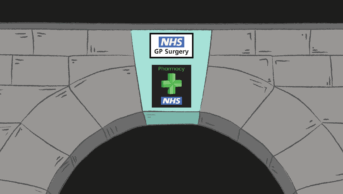
Shutterstock.com
Under the revised GP contract for England, GP practices will be required to ensure that community pharmacies can send patient consultation summaries into practice workflows from 1 October 2025, NHS England has announced.
In a document — entitled ‘Changes to the GP contract for 2025/26‘, published on 28 February 2025 — NHS England has said that practices must make sure the functionality in their GP Connect systems is operating so that pharmacy consultations can be recorded.
GP Connect is a NHS digital service that allows authorised clinical staff to share and view GP practice clinical information and data between IT systems. The service was expected to be ready in time for the introduction of Pharmacy First in England at the end of January 2024, but delays meant the system was not available until later in 2024.
In July 2024, the British Medical Association’s General Practitioners Committee recommended that GPs should temporarily turn off the ‘Update Record’ feature on the system owing to concerns over increased workload.
Commenting on the updated GP contract, Nick Kaye, chair of the National Pharmacy Association, told The Pharmaceutical Journal: “This is a positive development that will help pharmacies, GPs and other parts of our health system work more closely together and ensure better care for patients.
“As the clinical role of pharmacies rightly expands, it’s important that community pharmacies are able not just see but make additions to the patient record where appropriate.”
Another change introduced in the GP contract for 2025/2026 is that GP Additional Roles Reimbursement Scheme (ARRS) funding will be combined with the main ARRS pot, removing the GP ARRS ring fence.
In its document outlining the contract changes, NHS England said: “We will combine the funding in the two ARRS pots to create a single pot for reimbursement of patient-facing staff costs, with no restrictions on numbers or type of staff who are covered — including GPs and practice nurses.”
GPs will be eligible for ARRS funding two years after qualifying.
Commenting on this change, Graham Stretch, president of the Primary Care Pharmacy Association, said: “Adding early-career GPs to an ARRS scheme and removing restrictions gives greater freedom for clinical directors and practice partners to adapt PCN [primary care network] workforces to meet patient needs in their local communities.
“I note that this applies to those in the first two years of their GP careers and that this will be ‘alongside requisite additional funding’. Assuming these roles do indeed attract additional funding, this would likely have a neutral effect on pharmacy professional retention and recruitment at this stage.”
Danny Bartlett, clinical lead at Kent, Surrey and Sussex Primary Care School, added: “I welcome that there has been agreement on the 2025/2026 GP contract, but wish to caution practices and PCNs to not over-hedge their ARRS workforce solely on nursing and GPs.
“Whilst it is a welcome addition to have more roles and flexibility in the ARRS, this does pose a risk that some practices, and PCNs will just double down and chase the new shiny roles within the scheme, forgetting the integral value and importance of pharmacy professionals in primary care.”


